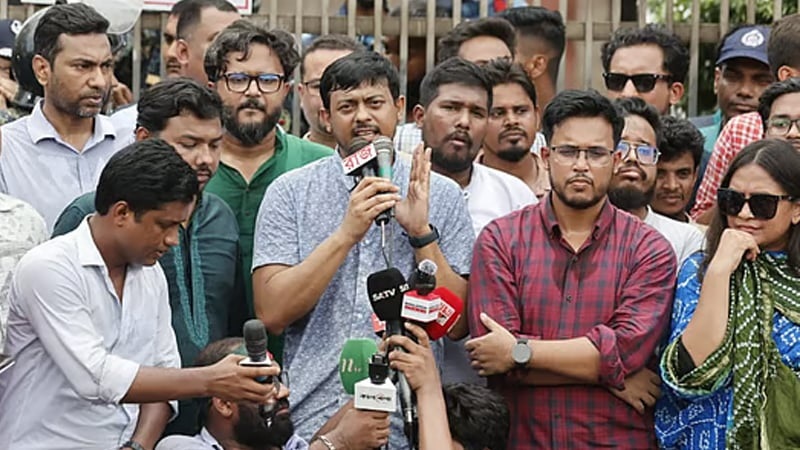Online Report
Nasiruddin Patwari, Chief Coordinator of the National Citizens’ Party (NCP), has strongly criticized the current Election Commission (EC), alleging it functions as an extension of the Bangladesh Nationalist Party (BNP).
He asserted that the NCP would not permit any elections—local or national—until the EC is restructured.
Speaking at a protest rally on Wednesday in front of the Election Commission headquarters in Agargaon, Dhaka, Patwari emphasized that local government elections are scheduled before the national polls. As long as we live, we will ensure that this commission is reformed.
The demonstration, organized by the NCP’s Dhaka Metropolitan Unit, drew participation from approximately 150 leaders and activists. Protesters called for an immediate overhaul of the Election Commission and the swift scheduling of local government elections.
The rally followed a press conference held the previous evening at the party’s central office in Banglamotor, where NCP Secretary General Akhtar Hossain officially announced the programme.
During the protest, party leaders claimed the current Election Commission was formed under the 2022 legislation and lacks credibility.
“The NCP demands a new Election Commission based on the recommendations of the Reform Commission,” said one speaker. “How can mayors elected through illegitimate elections be considered legitimate?”
They warned that unless the EC is reconstituted, the NCP will boycott all future elections.
The protest began at approximately 11:30 AM, with party members arriving in processions from various parts of the capital. Security was significantly heightened in the area, with a large deployment of law enforcement personnel, including the police, Rapid Action Battalion (RAB), Border Guard Bangladesh (BGB), and the Coast Guard. Barbed-wire barricades were installed in front of the EC building to maintain order.
Following a series of speeches from local representatives, Nasiruddin Patwari concluded the event with a firm reiteration of the party’s stance on electoral reform.


